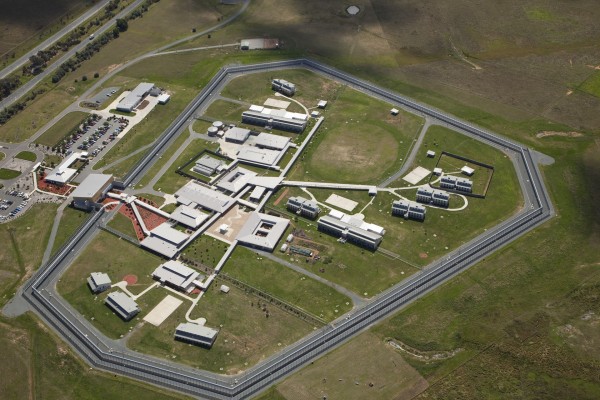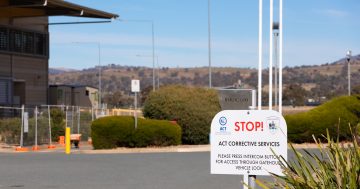
The Alexander Maconochie Centre: 30 per cent of prisoners are on the methadone program. Photo: File photo.
A culture of drug-seeking persists among prisoners at the ACT’s prison where about 30 per cent of detainees are on its methadone program for heroin addiction and staff are failing to stop the diversion of the opioid replacement for recreational use, a new report has found.
ACT Health Services Commissioner Karen Toohey reviewed the opioid replacement treatment program at the Alexander Maconochie Centre to address concerns about the operation and how detainees’ eligibility for methadone treatment was assessed.
It comes in the wake of the Moss Report following the 2016 overdose death of Steven Freeman at the AMC.
Ms Toohey found that detainees perceived it was relatively easy to be placed on methadone at the AMC and they sometimes sought it for recreational and other reasons.
Although she acknowledged that procedures and practices had tightened significantly and that the current assessment process was generally consistent with ACT and National Guidelines, Ms Toohey recommended further measures to ensure the safety of detainees and that they were eligible and properly identified for the methadone program.
These included requiring more evidence to verify information provided by detainees, confidential urine screening, and requiring prescribing doctors to refer matters to the ORT Clinical Meeting for review.
Ms Toohey also found Hume Health Centre’s move to electronic dosing of methodone and iris scanning technology in some areas of the AMC to ensure accurate identification of detainees should help reduce the risk of human error and double dosing.
But a serious overdose incident in February highlighted the increased risk of a dosing error during machine down-times when staff reverted to manual dispensing.
Ms Toohey recommended the technology be rolled out to all areas of the AMC and be used consistently, and that additional safeguards be put in place.
The review found that Corrective Services staff were not implementing measures consistently to prevent detainees diverting methadone for use by others and she recommended this be rectified, including refresher training for staff in searching and observation of detainees who are dosed with methadone.
She also recommended that where detainees persist in diverting methadone and places others at risk, methadone treatment should be withdrawn, but done in a way that is consistent with clinical standards and human rights.
Ms Toohey said the heroin overdose treatment naloxone should be available to be administered by appropriate staff at the AMC, and that detainees be given information about symptoms of overdose and how to respond in an emergency.
She said a lack of data on the number of former detainees who continue to receive ORT in the community following their release from custody hampered effective intervention to reduce the apparently high rates of attrition from community-based ORT programs.
Ms Toohey urged specialised case planning and health care to meet the needs of Aboriginal and Torres Strait Islander detainees.
She also resurrected the contentious issue of a needle syringe program in the AMC to reduce risks of blood-borne virus transmission, urging the Justice and Community Safety Directorate, Corrective Services and ACT Health to do more work to progress the implementation of the ACT Government policy.
Minister for Corrective Services Shane Rattenbury welcomed the review and its 16 recommendations, saying he would table it in the Assembly in the March sitting period, with the Government responding in the coming months.
“Steven Freeman’s death in May 2016 was a tragedy and the Government acknowledges the grief, loss and sadness that Steven Freeman’s family has experienced. The Government also acknowledges the significant impact that his death has had on our Aboriginal and Torres Strait Islander community,’’ he said.
“The ACT Government has undertaken a range of work to improve delivery of the opioid replacement treatment program at the AMC. We are committed to ensuring that this system operates as effectively as possible for those detainees who require methadone treatment.’’
The review can be found here.



















